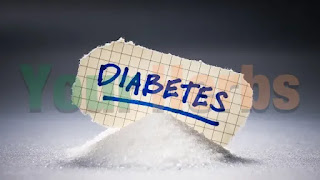There are more and more products that replace sugar and allow diabetics to enjoy foods and drinks that do not affect blood sugar, and in this topic we will talk about more sugar for diabetics.
Sweet products and diabetics
It is known that people with diabetes require special care to avoid hyperglycemia, and controlling blood sugar is important to avoid the most serious complications of diabetes, including nerve damage and cardiovascular disease.
Choosing sugar substitutes is one of the ways to preserve the sweetness of foods and drinks, especially since there is more than one special sugar for diabetics, but you must also be careful when using sugar substitutes and sugar substitutes and not to overdo it.
The health effects of sugar
Before you know more about sugar for diabetics, know, dear reader, that sugar is not only harmful for diabetics, but has many health damages including.
- It controls the essential minerals in the human body such as magnesium, calcium and potassium.
- Weakens teeth and bones.
- Sugar leads to the development of cancer.
- Sugar causes premature aging.
- Sugar causes depression, anxiety, irritability, and chronic fatigue due to high blood sugar levels.
- Sugar increases cholesterol and poses an increased risk to the heart.
More than one type of sugar for diabetics
There is more than one type of sugar for diabetics as follows.
1- Stevia is an alternative to sugar
It is a natural sweetener found in the Stevia rebaudiana plant. How is stevia made? Manufacturers extract chemical compounds called steviol glycosides from the leaves of the plant.
This highly refined and processed product is about 300 times sweeter than sucrose or table sugar ,There are benefits of stevia sugar for the diet.
Stevia has many benefits that diabetics and those who want to lose weight need, such as..
- Stevia is calorie-free and does not increase blood sugar levels, rather it helps in controlling blood sugar levels.
- It helps in managing cholesterol in the human body.
- Stevia can help fight or prevent certain types of cancer and can help kill cancer cells.
- Stevia helps dilate blood vessels, which increases sodium excretion and urine production.
- It also lowers blood pressure and regulates heart rate.
Stevia side effects
Although stevia is a diabetic sugar and free of side effects, some people may have sensitivity to sugar due to bloating, abdominal cramps, nausea and diarrhea.
Current research also indicates that it is safe to consume the recommended amount of sugar substitutes or less during pregnancy.
2- Tagatose
Tagatose is similar to fructose and is 90% sweeter than sucrose, and although it is rare, fruits like apples, oranges and pineapple naturally provide tagatose.
Tagatose is low in calories and is used by manufacturers in foods as a sweetener and appetizer.
Some studies suggest tagatose has a low glycemic index and may support the treatment of obesity. It is especially useful for diabetics who follow a low glycemic index diet.
3- Sucralose
Sucralose is an artificial sweetener made from sucrose which is a special sugar for diabetics. This sweetener is about 600 times sweeter than table sugar but is low in calories.
Sucralose is one of the most popular artificial sweeteners, and manufacturers add it to chewing gum products and baked goods.
This alternative sweetener is heat stable, while many other artificial sweeteners lose their flavor at high temperatures, making sucralose a popular sugar-free baking option to sweeten hot drinks.
4- Aspartame
Aspartame is a very common artificial sweetener that is about 200 times sweeter than sugar, and manufacturers add it to a variety of food products, including diet sodas.
And aspartame is not a good substitute for baking sugar, as aspartame decomposes at high temperatures, and humans don't use it much.
5- Acesulfame potassium
Acesulfame potassium, an artificial sweetener about 200 times sweeter than sugar, is considered a special sugar for diabetics, and manufacturers often combine potassium with other sweeteners to combat its bitter taste.
6- Saccharin
Saccharin is another widely available artificial sweetener that is zero-calorie and 200 to 700 times sweeter than table sugar.
And more than 30 human studies now support the safety of saccharin.
7- honey
Honey is a special sugar for diabetics. Since ancient times, honey has been used as food and medicine, and it has many health benefits, including:
- Honey contains some nutrients and is free of fiber and fat.
- High quality honey is rich in antioxidants. Antioxidants have been linked to reduced risks of heart attacks, strokes, and certain types of cancer, and they may boost eye health, too.
- Honey helps lower blood pressure.
- It can reduce several risk factors for heart disease common in people with type 2 diabetes, and it can lower bad cholesterol, triglycerides, and inflammation while increasing good cholesterol.
- Honey promotes healing of wounds and burns.
- Honey can help prevent coughing in children.
8- Xylitol
Xylitol is extracted from cornwood and is found in many fruits and vegetables.
- It contains fewer calories.
- It does not increase blood sugar or insulin levels.
- Improves dental health and reduces the risk of tooth decay.
- Increases the body's absorption of calcium, which benefits the teeth and bone density.
- It also protects against osteoporosis.
Eating too much of it can lead to digestive side effects such as gas, bloating, and diarrhea.
Considerations when using more than one sugar, especially for diabetics
There are many considerations when choosing sugar substitutes for diabetics, and some general considerations are as follows.
- Intended Use Many sugar substitutes do not tolerate high temperatures.
- Some sugar substitutes are more expensive, while others cost more, such as table sugar.
- Some sugar substitutes are easier to find than others.
- Some sugar substitutes, such as stevia, have a bitter taste that many people may find boring. Ensure that manufacturers have not added chemicals or other sweeteners that reduce the nutritional benefits.
- Some people prefer to use natural sweeteners like stevia instead of artificial sugar substitutes, but natural doesn't always mean fewer calories.
- You can add fruit in place of sugar or artificial sweeteners if possible, and options include strawberries, raspberries, and mangoes.
In conclusion, we talked about more than one special sugar for diabetics, and if the sugar substitutes that we mentioned are considered safe, it is better to eat them in moderation and consult a doctor in the right quantity for you...with our wishes for a healthy life free of any disease.




Comments
Post a Comment